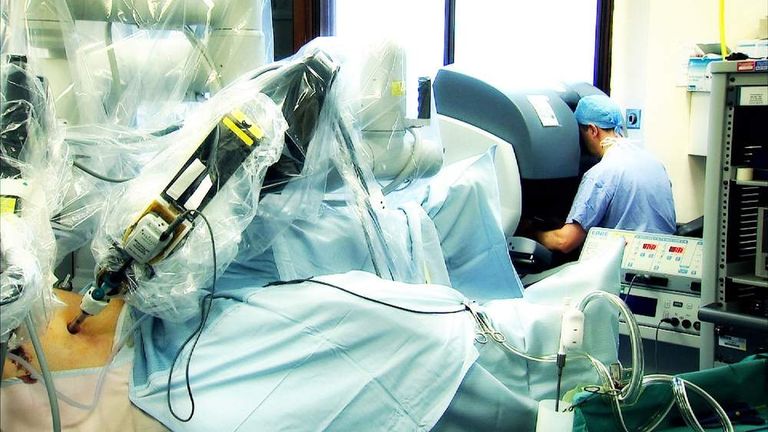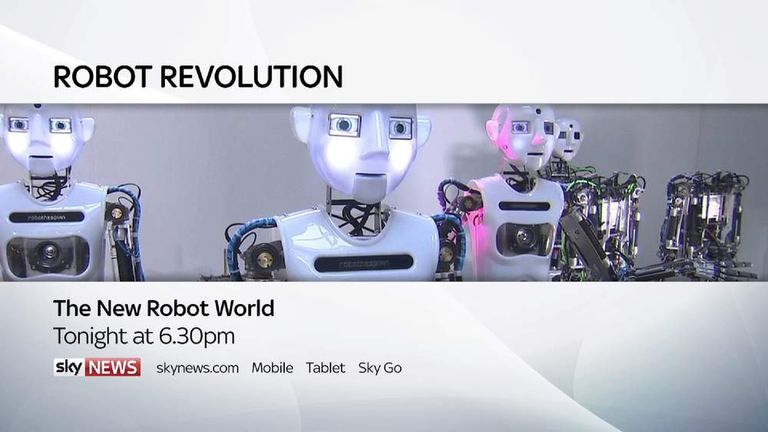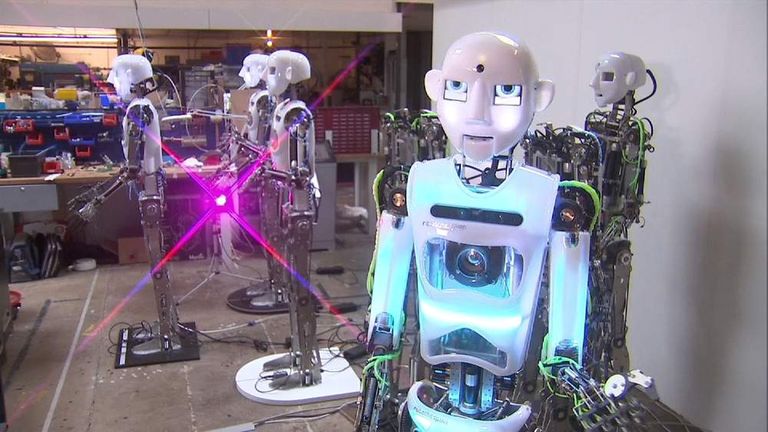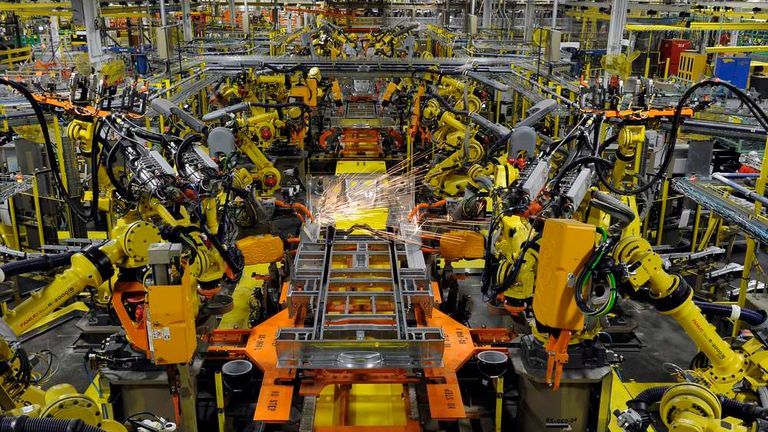Microrobotics: The Surgeons Of The Future
Scientists developing robots less than the width of a human hair are promising a breakthrough in less-invasive surgery.
Thursday 3 September 2015 22:19, UK
Robotic instruments that endow surgeons with "super-human" powers are being developed in a British laboratory.
Sky News has been shown a probe that gives medics "see-though" vision, allowing them to spot structures normally hidden from view. It also warns them if they are pressing too hard on delicate tissues.
Gauthier Gras, who is developing the technology at the Hamlyn Centre of Imperial College London, said: "If you are closing in on an aneurysm (a dangerously swollen blood vessel) you would want to be aware of the forces applied. It's easy to rupture it.
"But with this you are able to warn the surgeon ahead of time, to prevent damage."
The probe pinpoints its position in the brain using sensors and then takes information from pre-operative scans to 'augment' what the surgeon sees on a monitor.
Surgical robots currently used in NHS hospitals tower over the operating table. But scientists at Imperial College are shrinking the technology into hand-held smart tools or into instruments so small they can't be seen with the naked eye.
Professor Guang-Zhong Yang, director of the centre, said: "The type of robot we are making is getting smaller and smaller.
"It can be delivered in a needle so you don't need to make any incisions. They can follow the curved anatomical pathways to reach the site. We are already making graspers half the size of your hair."
Prof Yang said microscopic robots would one day make it possible to operate on individual cells at the earliest stages of a disease.
He added that the price of surgical robots will also shrink from around £1m today to "tens of thousands of pounds" as the technology is miniaturised and used more widely - just as the room-sized computers of the 1970s have developed into cheap, yet high-powered smartphones.
"The technology is coming a long way," he said.
Highly functional, low-cost robotics could also revolutionise the lives of people who need a replacement limb.
Open Bionics, a Bristol-based startup, is developing a robotic hand that can be custom-made on a 3D printer in just a few days.
Its digits move to pick up objects in the same way as existing bionic hands costing up to £90,000.
It hopes to sell the printed hand from the end of next year for less than £2,000.
Dan Melville, who was born without a right hand, has been testing a prototype. He said it's far better than the cosmetic prostheses currently given out by the NHS.
"They're creepy," he said. "With this I feel more cyborg. It's way cooler.
"You can make it anything you want it to be. You want to show it off and make other people jealous because they don't have a bionic hand."






